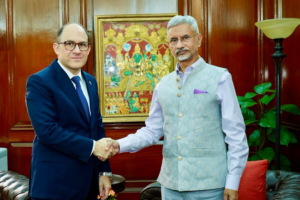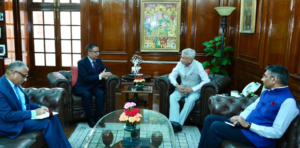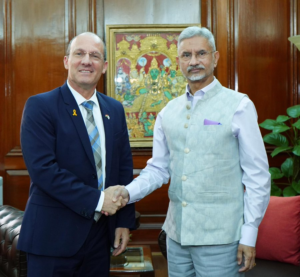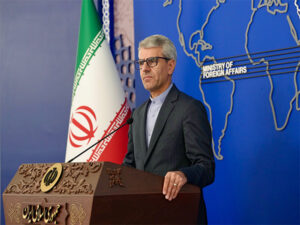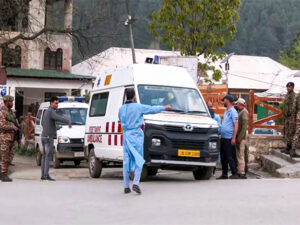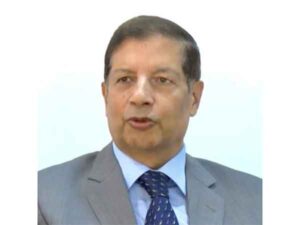In talks with US president Biden, PM Modi highlights Pakistan-sponsored terrorism: Foreign Secy Vinay Kwatra
Washington DC [US], June 23 (ANI): Cross-border terrorism and challenges faced by both India and the US in the Indo-Pacific region and what the two countries need to do to mitigate these challenges through cooperation figured prominently in the discussions between Prime Minister Narendra Modi and US President Joe Biden, according to Foreign Secretary Vinay Kwatra.
Briefing reporters here on Thursday (local time) the ongoing PM Modi US visit, which he described as “pathbreaking,” the Foreign Secretary said that PM Modi highlighted that the problem of “terrorism remains a pressing challenge for the global community.”
He also stated that the two leaders not only discussed several aspects of similar global threats but also talked about redressal of such problems.
Responding to an ANI question about whether a discussion or request was made by India on the extradition of Pakistan terrorist Tahawwur Rana, Kwatra said, “PM Modi said that even after two decades of 9/11 and one decade of 26/11, the problem of terrorism remains a pressing challenge for the global community.”
“Clearly, what he was highlighting was the need for the international community to recognise that the people who sponsor terrorism, support terrorism, they continue to pose a serious challenge to the safety and security of our societies and have to be very sternly and firmly dealt with,” the Foreign Secretary added.
“When the PM and President Biden held their discussions, all aspects of such global challenges were discussed between the two and how India and US could cooperate to mitigate, address and try and deal with this challenge as comprehensively as possible that was also discussed between the two leaders and going forward it would be our effort to see how some of those discussions can translate into concrete cooperative decision between India and the US,” Kwatra said.
“PM and President Biden in their discussions focused on the nature of challenges that both countries face in the Indo-Pacific region, including strategic challenges, and what India and the US need to do to mitigate those challenges through cooperation, Kwatra said.
In the US-India joint statement, issued on Thursday (Local time), the two countries strongly condemned cross-border terrorism, and the use of terrorist proxies and called on Pakistan to take immediate action to ensure that no territory under its control is used for launching terrorist attacks.
Biden and PM Modi reiterated the call for concerted action against all UN-listed terrorist groups including Al-Qaida, ISIS/Daesh, Lashkar e-Tayyiba (LeT), Jaish-e-Mohammad (JeM), and Hizb-ul-Mujhahideen.
Both countries stood together to counter global terrorism and unequivocally condemn terrorism and violent extremism in all its forms and manifestations.
They called for the perpetrators of the 26/11 Mumbai and Pathankot attacks to be brought to justice, read the statement.
Earlier, PM Modi had highlighted the need to fight terrorism and extremism that constitutes a real threat to democracy, the rule of law and the enjoyment of human rights.
Addressing a joint press conference on Thusday (local time) PM Modi said, “India and America are walking shoulder to shoulder in the fight against terrorism and extremism. We agree that concerted action is necessary to end cross-border terrorism.”
Notably, his comments come days after China blocked proposals at the United Nations to designate Pakistan-based Lashkar-e-Tayyiba’s Sajid Mir as a “global terrorist.”
Even 15 years after the Mumbai terrorist attacks, its masterminds have not yet been brought to justice.
Both leaders also raised concern over the increasing global use of unmanned aerial vehicles (UAVs), drones and information and communication technologies for terrorist purposes and reaffirmed the importance of working together to combat such misuse, added the joint statement.
They welcomed the cooperation between the two governments on counterterrorism designations and homeland security cooperation, including intelligence sharing and law enforcement cooperation.
Both leaders called upon the Financial Action Task Force to undertake further work identifying how to improve global implementation of its standards to combat money laundering and the financing of terrorism, added the statement.

